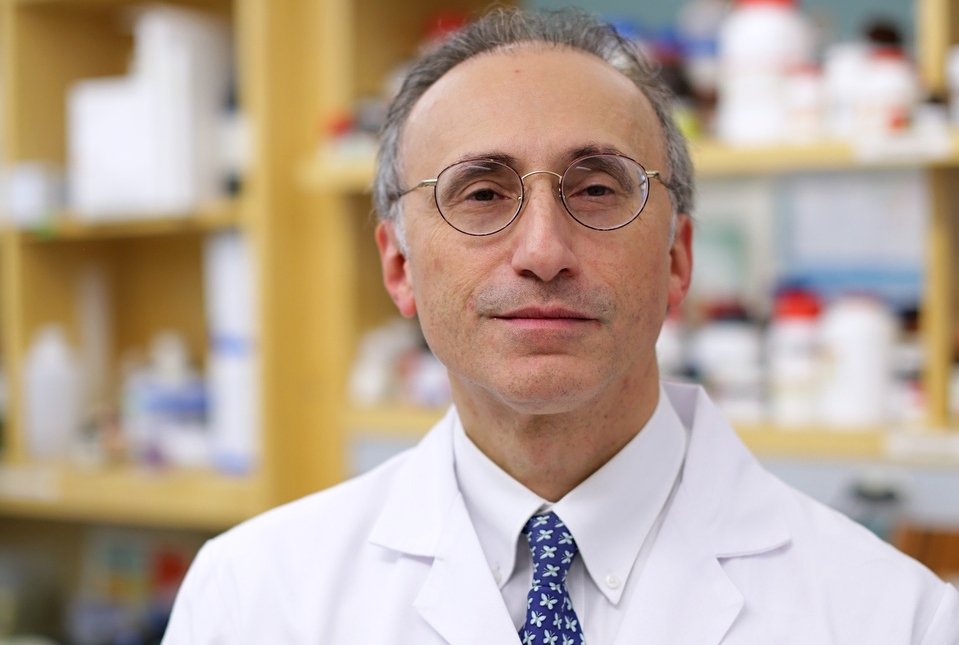Dr. Shahin Rafii, director of the Ansary Stem Cell Institute and chief of the Division of Regenerative Medicine at Weill Cornell Medicine, has received an Outstanding Investigator Award (R35) from the National Heart, Lung, and Blood Institute (NHLBI) of the National Institutes of Health (NIH), for an ambitious project to accelerate regenerative medicine technology.
The prestigious NIH Outstanding Investigator Awards provide long-term support to researchers with exemplary records that demonstrate their ability to make major contributions to biomedical research. Dr. Rafii’s award will cover approximately $1 million per year in direct and indirect costs, for seven years.
Dr. Rafii’s project, if successful, could help bring about a new era in modern regenerative medicine, in which diseased or damaged organs can be repaired in the patient or replaced by laboratory-engineered organs and their associated blood vessels made from patients’ own cells.
“My research group is grateful to NIH/NHLBI for this award, which will enable us to forge ahead with long-term, high-risk, high-reward research to conceive of therapies for organ regeneration,” said Dr. Rafii, who is also the Arthur B. Belfer Professor in Genetic Medicine at Weill Cornell Medicine.
Most adult organs and tissues have a very limited self-repair capacity, and although in principle they could be reprogrammed with the right molecular signals to heal more fully, scientists don’t yet have a good understanding of how to do this. The same problem has affected lab-grown organ technology: Scientists can use stem cells to make organ-like clumps of tissue in the Petri dish, but these “organoids” lack normal blood vessels and aren’t fully functional organs that can be easily transplanted into patients and heal without scarring.
Dr. Rafii’s group and collaborators have shown that a previously unappreciated class of cells called endothelial cells may offer a solution to these long-standing problems. Endothelial cells form the inner linings of blood vessels, lymphatic vessels and a vast network of small capillaries that deliver blood to every cell within organs. They are often highly specialized for particular functions, such as the blood filtering the kidneys perform, or the maintenance of the “blood-brain barrier” that protects the central nervous system. Notably, virtually all organ-specific stem or progenitor cells, including cancer cells, are located close to endothelial cells.
Dr. Rafii’s research team has uncovered that tissue-specific endothelial cells are not just passive conduits to deliver oxygen and nutrients, but rather, by supplying key growth factors known as angiocrine factors, they choreograph organ development and repair. However, cancer cells can hijack and subvert normal vessels, causing them to release angiocrine factors, stimulating growth and metastasis. Thus, to build an organ, the scientists must engineer designer endothelial cells that satisfy the needs of that particular tissue but do not become corrupted and potentially foster tumor formation.
In research recently published in Nature, Dr. Rafii and his team used a gene-switching protein that is normally active only in the first months of life to “reset” adult endothelial cells to a younger and more malleable state that promotes regeneration. The team showed that these reset vascular endothelial cells (R-VECs) developed into blood vessel networks that were capable of carrying human blood in large-volume, scalable microfluidic devices. Adding these R-VECs to lab-grown human organoids prompted them to grow larger and sprout new blood vessel networks, while adding them to human pancreatic islets enabled the islets to function properly.
Now, Dr. Rafii’s team plans to capitalize on the R-VECs’ ability to adapt to nearby cells to identify the specific molecular codes that confer native tissue-specific endothelial cells with their unique organ functions. In principle, knowing those regenerative codes could enable doctors to coax damaged organs, such as failing hearts, brain or kidneys to heal themselves—or could render the dream of unlimited lab-grown replacement organs a reality.
”We have brought together a group of talented molecular, cellular and computational biology experts, as well as biomedical engineers, to build organs from scratch,” Dr. Rafii said. “Our goal, in seven years, is to leverage multidisciplinary approaches to customize vascular building blocks for manufacturing transplantable organs that can readily connect to blood circulation and function perpetually, without provoking scarring or tumors.”


